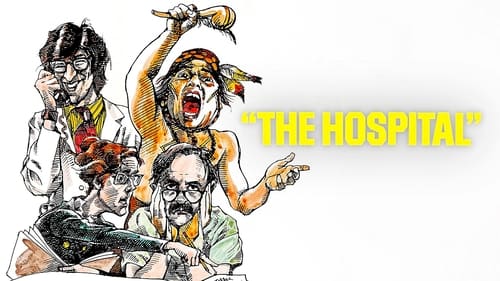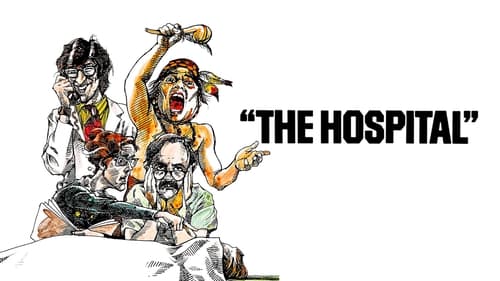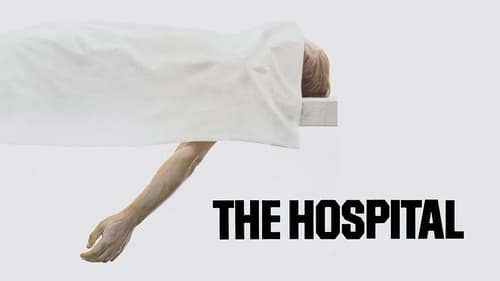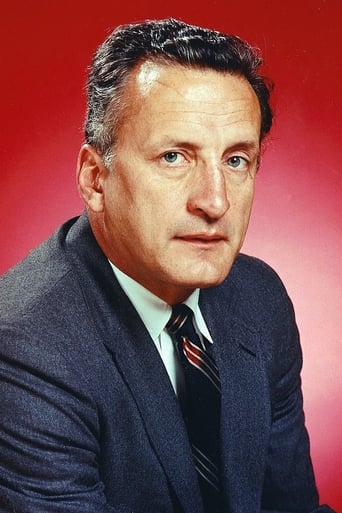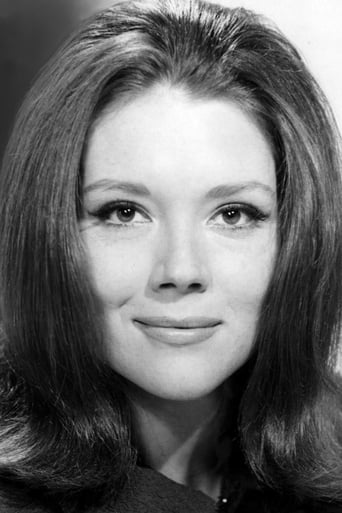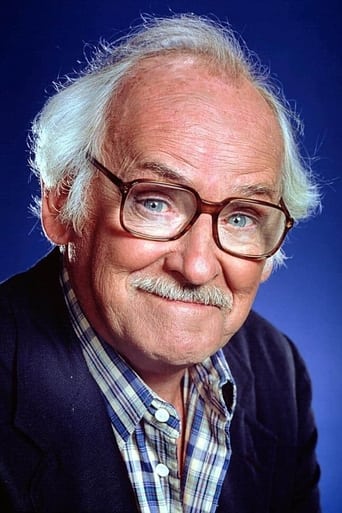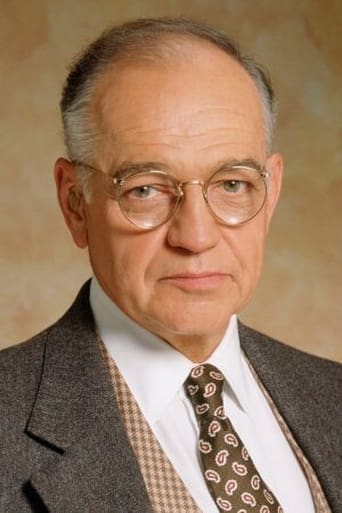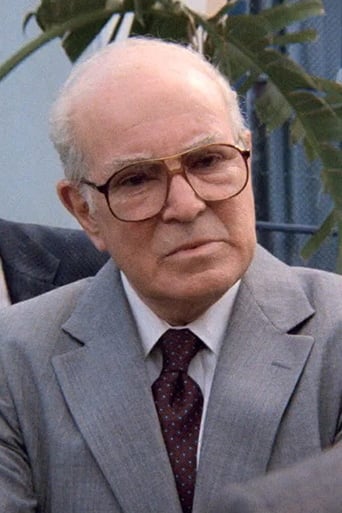Alicia
I love this movie so much
AshUnow
This is a small, humorous movie in some ways, but it has a huge heart. What a nice experience.
Tayyab Torres
Strong acting helps the film overcome an uncertain premise and create characters that hold our attention absolutely.
Philippa
All of these films share one commonality, that being a kind of emotional center that humanizes a cast of monsters.
Mr-Fusion
"The Hospital" is pretty much what you'd expect from a Paddy Chayefsky movie on healthcare. Its Manhattan Hospital Center is a Gothic horror funhouse in which patients are killed either due to neglect, the wrong diagnosis or any other manner of bureaucratic nightmare. All of this is played to the ridiculous extremes and it makes for some hilarious dark comedy.George C. Scott is the film's fiery main attraction (the man is incomparable, really), and his frustrated character is both energizing and exhausting. And his one-on-one dialogues with Diana Rigg help give this movie its emotional core. But the outlandishness of this hospital is what makes this movie memorable for me. Which honestly isn't supposed to subtract in any way from Scott's contribution (seriously, watch this for him), but there's also Barnard Hughes' tirade in the OR, Mrs. Cushing's badgering of despondent patients for their Blue Cross numbers, and the kind of farcical healthcare environment that really hits a little too close to home, these days.This is riveting absurdity.8/10
AaronCapenBanner
George C. Scott delivers a searing performance as Dr. Herbert Brock, Chief of Medicine at an unnamed urban hospital who is beset by a series of mysterious deaths(both doctors and patients) that he at first attributes to incompetence(there is some) but later finds that they are a deliberate act committed by a madman...In the meantime, he must deal with his own problems as he struggles with a divorce, grown children who wont speak to him, and his impotence. His life changes when he meets a beautiful woman(Diana Rigg) who wants his permission to release her comatose father into her care. Brock pours his heart out and vents his rage with her, causing them to fall in love(!) though her father isn't as comatose as they think...Brilliant comedy is one of the finest ever made, being uproariously funny on the one hand, yet profoundly bleak on the other. Superbly written(Paddy Chayefsky) and directed(Arthur Hiller) film has many profound things to say about medicine and humanity, and will stay with you long after the film is over. A classic.
jzappa
Having grown up on See No Evil, Hear No Evil, The Lonely Guy and The In-Laws, I'd never seen the true potential of Arthur Hiller as a director. The ultimate concern of Hiller, whose best film this arguably is by far, and Paddy Chayefsky, who wrote the high-spirited screenplay, is not the hospital but a class structure that has grown so complex that it allows people to be forgotten to death, and is so full of awful contradictions that only escape, by one means or another, seems rational.Hiller, who's a much better director than Carpool or An Alan Smithee Film: Burn Hollywood Burn could ever suggest, works beautifully with Chayefsky. It isn't just that he finds outstanding performances from George C. Scott and Diana Rigg, but he has impeccably cast the film down to roles that are so minor they rely as much on raw mannerism as on dramatic technique. And Hiller's camera is mobile, roaming the hospital corridors, helping to create a sense of action and movement, reflecting the chaos of confusion in the place.It starts as a comedy of errors, and one of the delicate things about that genre is its penchant for going out of control while endeavoring to outdo itself. Chayefsky has sidestepped this tidily by confining his absurd elements to a subplot while navigating his central story down a lingering, forlorn night with a bizarre doctor and an even more bizarre woman.The medical establishment working as a metaphor for American chaos, the movie begins with hospital scenes that appear to evoke the M*A*S*H gang in private practice. For a kickoff, a diabetic intern is ill-omened enough to fall asleep after scoring with a nurse on a hospital bed. He's presumed to be the bed's comatose patient, and is unintentionally killed by an intravenous food supply. Come morning, a nurse and two doctors will also depart, largely since they were wearing the incorrect ID bracelets at an unfortunate time.Administrating this disorder as chief of staff, Scott barely minds. He's left his wife, thrown his disheveled Marxist son out of the house, amuses suicidal daydreams, and splurges his nights in bleak unity with a quart of vodka. Throughout the first half of this black comedy about disillusionment, he's a character close to the cartoon caricature one might expect, but by midpoint, as the hospital disintegrates about him, a surprising thing occurs.He meets Rigg, a former SDS, acidhead and nurse who lives with her foolish father among a clan of Native Americans. She's there to guide the story into its languishing, desolate night, which includes some of Chayefsky's best non-Network writing.Unsuccessful in a suicide attempt as in, evidently, everything else, Scott hears the girl's story and then tells his own. Their monologues, told in the mutedly lit and anxiously closed-in doctor's office, exercise high-quality writing, acting and direction to shift the movie away from the comedy of errors du jour and into the night of terror that satire necessarily veils. Their meeting may seem initially like merely another case of Solitary Midlife Meets Right Youth, but soon it gets a lot more freshly complex than that.The morning after is teeming with half-baked spiritual revelations. Community activist protests and outlandish flukes that are clarified in rather tender flashbacks. It's here that we start longing again that Chayefsky and director Arthur Hiller had settled on farce, had let science yield the casualties, rather than art.However in a sense, the movie's conclusion is part of its splendor. If we were left thinking the hospital had unthinkingly and accidentally committed murder, we'd be back on the humanist panel in the campaign against knowledge. As it is, Chayefsky's strange and unforeseen ending proposes that people, even psychos, may always exploit the establishment for their own exclusive intent.
jbartelone
The Hospital is a movie that was made ahead of its time. This film, produced by screenwriter Paddy Chayefsky, who gave us the Oscar-Winning film, "Network", deals with overworked staff, gross incompetence, and bureaucratic corruption at a large conglomerate hospital in Manhattan. George C. Scott, in a superb performance as the head physician, is driven to alcoholism and a death-wish, as he tries to recover from a divorce, throwing his son out of the house, and worst of all, a medical facility where corruption and incompetence take precedence over caring and healing of the sick and injured.Mr. Scott makes the movie his own, and viewers will be shocked at what they observe at this medical establishment. You can feel the "pain" (pun intended) of what this hospital has done to him. The vivid images of this hospital's incompetence are so vivid and dramatically powerful that you may find yourself laughing and being deeply disturbed from scene to scene.If only the film had stayed with that premise in a documentary style fashion as it starts out, this picture would be brilliant. Unfortunately, there is a sub-plot of Scott falling for the daughter of a senile patient. The patient has been murdering people at the hospital. This is where credibility of the picture becomes strained. The romantic dialog scenes add nothing to the picture, and the mental patient, posing as a doctor, I found to be totally unbelievable. A simple security call and records check should have prevented the senile patient from doing the killings. It takes almost the whole movie, before security people are brought into the film to get the patient out of the hospital. I could not see ONE PERSON doing that much damage, even as corrupt as this hospital is.Furthermore, George C Scott's character is "overworked" (another pun intended) because the script has too many things happening at once. For example, within a period of 20 minutes, you could have as many as 20 different doctors accused and denying what they should have done or didn't do. With the nurses and aids, it's the same story. Someone's chart was read wrong, someone was given the wrong medication and died, the doctor operated on the wrong patient, than another doctor does the same thing, blaming a third nurse who was not on call because the second nurse who was supposed to be admitting the patient was on her coffee break. There is also a lot of subtle, dark humor with the same messages of incompetence and corruption being fed to the viewer.This repetition of medical ineptness is unforgettable. However, the murder subplot is a distraction more than a help to this movie. When the focus of this film is on the incompetence of the staff and Scott's reactions to this, you are glued to the screen. But the conversations between Scott and the mad patient's daughter force the film into a mystery type "Who Done it?" scenario that seriously hurts the quality of the movie. When the loony patient is revealing how he did the killings, I wondered the following: Why did the producers need the "find the killer" mad-patient sub-plot? I think the only point of Scott's character having a relationship with the senile patient's daughter, was to give him anybody with whom to communicate. The Hospital should have maintained its scathing indictment of the medical profession by removing the love-interest and mad patient scenes. It should have focused on the incompetent B.S within its walls more frequently. In an era where this movie could have been phenomenal, the sub-plot stories make the film very good instead of the great masterpiece it could have been.


